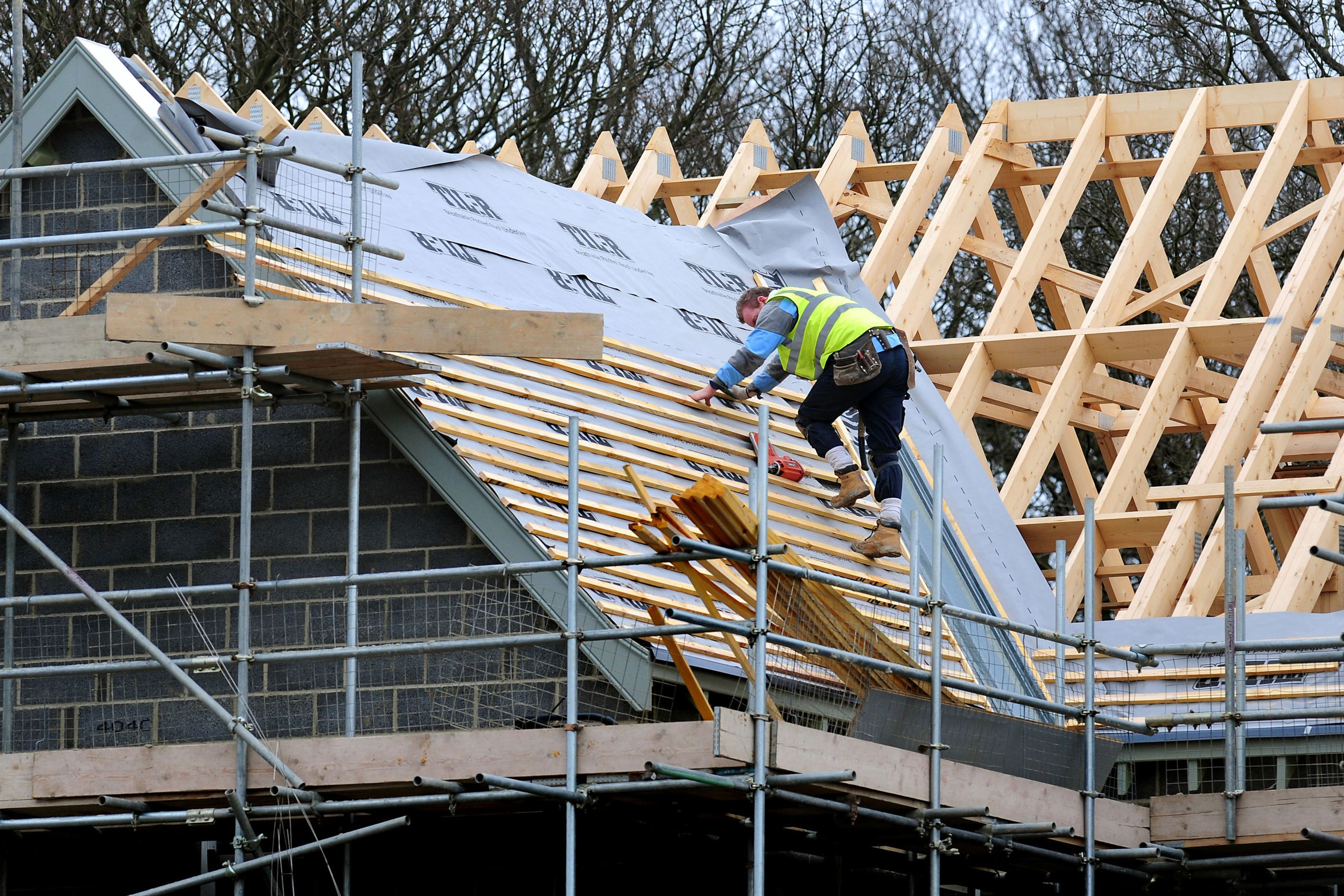Housebuilding slump drags construction sector into decline
Residential building work fell at the steepest pace since 2009 outside of the pandemic years.

Higher mortgage rates have pushed UK housebuilding into a steep downturn, helping to reverse a period of growth for the wider construction sector last month.
Residential building work fell at the steepest pace since 2009 outside of the pandemic years.
The latest S&P Global/CIPS construction purchasing managers’ index (PMI) scored 48.9 last month, down from 51.6 in May.
UK construction companies saw a decrease in activity for the first time in five months – with a score below 50 indicating a decline, whereas anything above is seen as growth.
The PMI score came in below economists’ expectations, with the consensus predicting a reading of 50 for the month, which signals the sector was flat.
Weaker demand for new homes dampened housebuilding activity, which contracted at the fastest pace in three years, or since 2009 outside of the lockdown-related falls.
Builders said higher borrowing costs and a subdued outlook for the housing market was acting as a major constraint, the survey found.
But less demand for residential work was partially offset by strong growth for civil engineering, with construction companies getting more infrastructure project work.
There was also more interest in refurbishment projects which helped lift the commercial building segment.
Furthermore, purchasing prices decreased marginally, marking the first time that costs for builders have reduced since January 2010. Construction companies said the cost of fuel, steel and timber had all gone down.
However, optimism among builders was weak as firms voiced concerns over rising interest rates and depressed housing market conditions, the survey showed.
With interest rates at the highest for 15 years and inflation four times over the Bank of England target, the sudden reduction in construction sector hiring is one of the red flags facing the UK economy at the moment
Samuel Tombs, the chief UK economist for Pantheon Macroeconomics, said higher mortgage rates have “triggered a plunge in housebuilding”.
He added: “June’s construction PMI suggests that interest rates now have risen far enough to push the sector into a renewed downturn.”
But he said “encouragingly for the MPC (Monetary Policy Committee)”, the housebuilding downturn has helped push down prices and wages, which helps the Bank of England achieve its target of bringing inflation back down to target.
John Glen, chief economist at the Chartered Institute of Procurement & Supply (CIPS), said: “Looking ahead, there were few reasons to be cheerful as optimism fell to its lowest since January.
“A large blot on the landscape was the fall in employment growth. With interest rates at the highest for 15 years and inflation four times over the Bank of England target, the sudden reduction in construction sector hiring is one of the red flags facing the UK economy at the moment.”